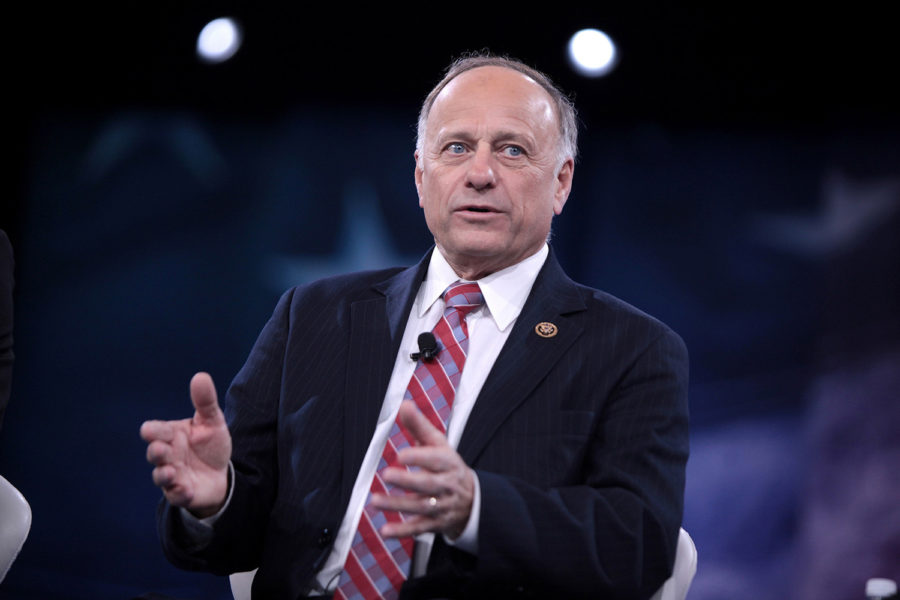Editorial | GOP hard on King, soft on Trump
Gage Skidmore/Planet Pix/Zuma Press | TNS
U.S. Rep. Steve King of Iowa during the annual American Conservative Union CPAC on March 3, 2016, at National Harbor in Oxon Hill, Maryland.
January 16, 2019
Iowa Republican Rep. Steve King has drawn a firestorm of criticism and consequence from his Republican colleagues following his recent remarks to The New York Times in which he embraced white nationalism and white supremacy. But Republican leadership has waited too long to condemn King and still remains quiet on President Donald Trump’s similar remarks.
“White nationalist, white supremacist, Western civilization — how did that language become offensive?” King told The New York Times.
The Republican leadership was quick to respond. Senate Majority Leader Sen. Mitch McConnell suggested King “find another line of work” and the House of Representatives voted 424-1 in favor of a resolution disapproving of King’s remarks — even King himself voted for the resolution despite claiming his statement was taken out of context. The House Republican Steering Committee, responsible for overseeing committee assignments, met Monday night and promptly stripped King of his assignments on the Judiciary, Agriculture and Small Business committees.
Top Republican leaders made the right move in condemning King and stripping him of his power, but it comes after a long pattern of similarly disturbing remarks that have previously failed to draw GOP condemnation.
King made his far-right rhetoric clear in the 2016 primaries, proposing electric wiring on a border wall to treat immigrants like livestock and described migrants as drug traffickers with “calves the size of cantaloupes because they’re hauling 75 pounds of marijuana across the desert.”
King tweeted in 2017, “We can’t restore our civilization with someone else’s babies,” and doubled down, adding he “meant exactly what [he] said.” King’s racist remarks resurfaced in 2018 when he compared Mexicans to dirt at a campaign stop. In August, he participated in an interview by with Austria’s Freedom Party, founded by a former Nazi officer, in which he railed against the decline of Western civilization and claimed white Europeans were being replaced by immigrants.
King’s controversies stretch back years, but only now has he felt the consequences for his remark on white nationalism. When asked why King seemed to have gotten away with similar behavior, Republican officials were eager to deflect the blame.
“I haven’t been following every utterance of Congressman King,” Sen. Mitch McConnell told reporters. “I certainly followed this one, and I think the House Republican conference did the right thing.”
The same leadership is also reluctant to push back against President Trump when Trump makes similar remarks. Trump has suggested there were “some very fine people” among white nationalist protesters in Charlottesville, Virginia, and invoked a historic massacre of Native Americans to mock Sen. Elizabeth Warren.
Trump’s ties to King’s remarks run deeper than simple parallels in rhetoric. Trump has openly embraced King’s far-right stance in the past. While Trump was considering a presidential run in 2014, he described King as a “special guy, a smart person, with really the right views on almost everything.”
And as a swift Republican response to King’s comments has consumed Congress, Trump declined to condemn King, feigning ignorance.
“I haven’t been following it. I really haven’t been following it,” Trump told reporters.
The Republican leadership likely hopes their actions against King will be seen as a genuine stand against white supremacy, not something done when it is politically convenient. The GOP’s silence on Trump says otherwise.




